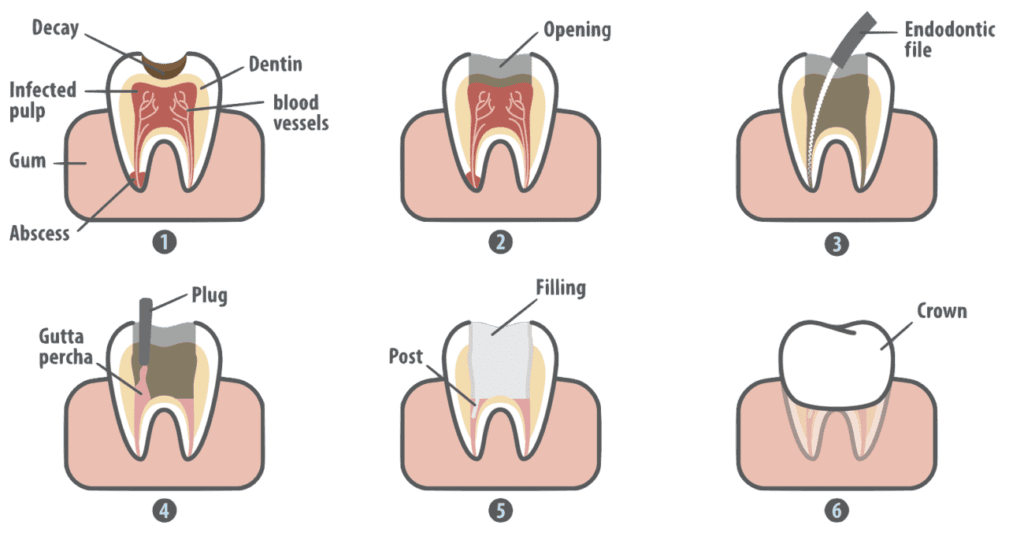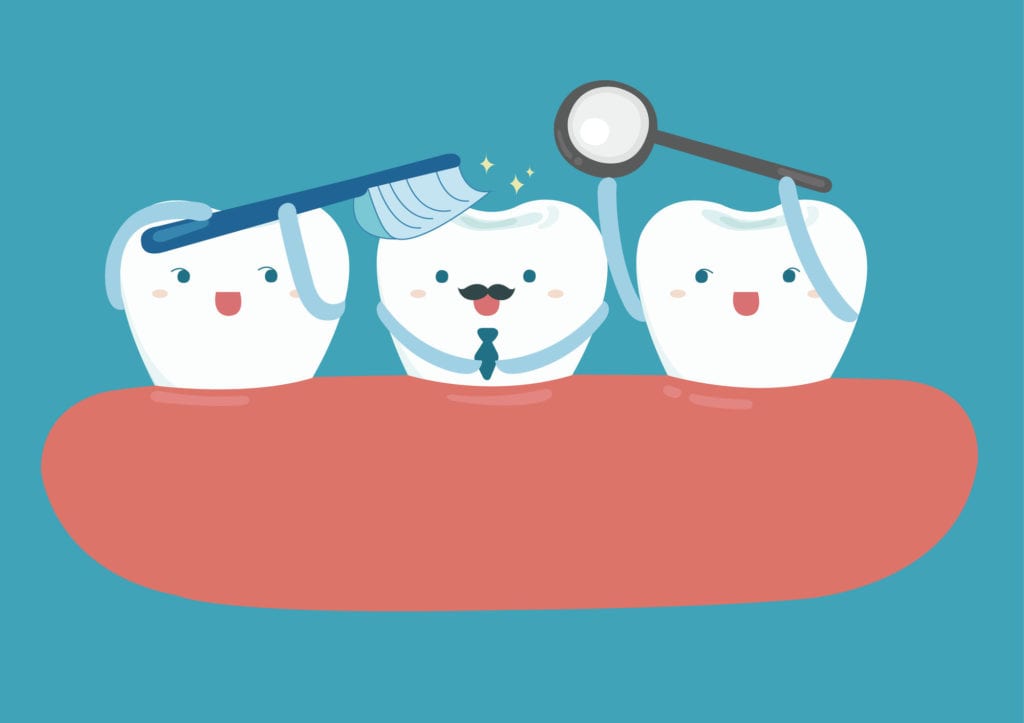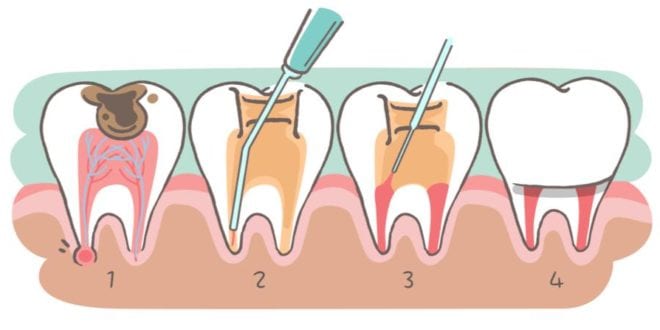Root canals are often necessary when there’s a lot of decay and possible damage to the nerves. The thing is that people who could use a root canal sometimes put off the procedure until they have no choice. Why do they wait? Here are the four most common reasons.
1. The Pain’sPain’s Manageable

For some people, pain is the motivation for finally seeking treatment from a dental professional. Until then, they will either put up with a small amount of discomfort or ignore the situation entirely if there is no pain at all. Even so, the damage is just getting worse. If you are in this boat and think there’s no hurry just because the root canal pain is not that bad, think again. You could be putting your dental health in greater danger than you realize.
2. No Dental Coverage
Dental procedures are not cheap. It’s one thing to come up with a copay when you have dental insurance. It’s another matter entirely to find a way to pay for a procedure entirely out of pocket. That’s why people with no dental insurance often choose to put off seeking treatment until they have no other alternative.
There are medical loan lenders who can provide the cash to cover a root canal now and allow you to pay off the balance with a series of installments. You may also look into securing a discount dental plan that lowers the cost of a root canal by a reasonable amount. In both scenarios, it will be easier to manage the damage and get the work that you need.
3. The Time Factor

Life does get busy, and people tend to put all sorts of tasks ahead of seeing a dentist. Eventually, things will progress to the point that you have no choice but to make time. By then, your condition will be worse, and it will take longer to resolve the issue.
Even if it means having to rearrange the schedule a bit, choosing to see a dentist sooner or later increases the odds that the root canal will go off without any complications. That’s an excellent use of your time.
4. A Fear of Dentists
People may have a severe fear of dentists and dental clinics. It may have to do with something that happened in childhood, or it could be a fear that the dentist will find even more problems that need attention. Whatever the cause of the anxiety, the only thing that’s happening is you run the risk of developing some serious dental issues. Rather than allowing the fear to continue dominating your thinking, find a way to push it to one side and get the work done that’s needed to improve your dental health.
Remember that you don’t have to wait until there’s a serious issue to resolve. Annual examinations can head off several problems. It’s okay to pay a visit to professionals such as from Barrie Smile Centre to make sure all is fine with your teeth and then schedule cleanings and other routine tasks that help to keep your teeth in good shape. If it’s been some time since you saw a dentist, call today and schedule an appointment. It will be your first step toward protecting your dental health.
Tips for preparing for a root canal treatment

Do you want help in preparation for your root canal treatment? So it turns out to be that time of year again! If you or someone you know has had a root canal, you know that there is a wide variety of reactions to root canal treatment. Some people and I feel most people have no problem with a root canal. But others shiver when thoughts of their root canal treatment are brought up. Therefore, we want to provide you with five tips on how you can make your root canal treatment an experience that could be more enjoyable.
- Ask your dentist if an antibiotic is necessary. A root canal is often needed if there is a persistent infection. When a medicine is used in these cases, it can help chemically get rid of bacteria that is causing the infection. That will not only reduce the disease, but it can also help reduce possible inflammation and improve healing after endodontics. Now you must know what antibiotics you can take because many people have severe allergies to certain medicines. If you feel you may need an antibiotic, remember to ask your treating dentist.
- Take a nonsteroidal anti-inflammatory drug (NSAID). The most common nonsteroidal anti-inflammatory drugs are ibuprofen and naproxen, and when taken, they can reduce pain and swelling. We recommend that you are making an NSAID a few days before having the root canal and then continue to take after the procedure is complete. You can even take with pain medication that is prescribed by the dentist like Vicodin or Percocet. You should consult your dentist before deciding to take these medications as certain medical conditions prohibit me from taking them.

- Get a good night’s sleep before the root canal appointment. We recommend to all our patients, regardless of dental treatment, to get a good night’s sleep. That will help reduce anxiety and improve the patient’s overall well-being. Many patients require or want additional sedation to reduce their stress. These options are available depending on the dentist. Some will offer nitrous oxide or hilarious gas, which is usually sufficient for most patients. Others may require a form of conscious sedation that sleepy sleep or even during the appointment. More infrequent is IV sedation, but it is available in certain circumstances. Being well-rested the night before your date significantly improves your emotional response to treatment and your ability to think and react clearly.
- Before any dental procedure and in particular a root canal treatment, it is essential to eat a good healthy meal. Endodontics procedures can often take from one hour to three hours possible. Eating a good meal before the appointment will ensure that you will be bothered by hunger or upset stomach. It will also require most of the time to have a root canal that is numb, possibly feeling throughout the mouth and for an extended period. That means being able to eat after the procedure can be difficult, if not impossible. Eating a good meal an hour before your appointment will help you feel more comfortable during and after your root canal procedure.
- Follow up with your dentist to have restorative work on the tooth. Many General dentists consult endodontics with a specialist called an endodontist. They are dentists who have been specially trained to perform painful endodontic treatments. If it is a posterior tooth, a crown is often required. That will ensure that that tooth will not fracture and be able to withstand the forces that are placed on it when eating. Sometimes a simple filling may only be necessary, but you must follow your root canal appointment with one to protect your tooth.
Now that we have given you five tips to make the endodontics experience more tolerable make sure not to procrastinate. It will only get worse.
 Imagup General Magazine 2024
Imagup General Magazine 2024



